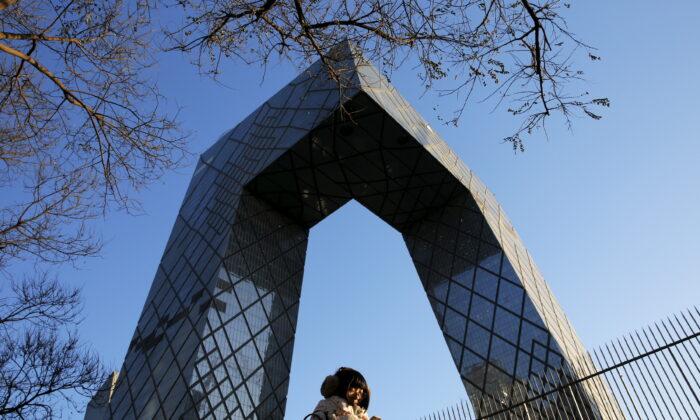The federal Conservatives are proposing changes to the Broadcasting Act that, if approved by Parliament, may see a possible removal of two Chinese state-owned broadcasters from Canada’s airwaves.
The proposed changes target any foreign media that is “subject to direction or controlled by a non-democratic foreign state, by a foreign state that is committing genocide or crimes against humanity, or that transmits, produces, or participates in the production of forced confessions.”
Conservatives Garnett Genuis, a human rights critic, and Alain Rayes, the party’s heritage critic, said their proposed revisions seek to bar authoritarian or genocidal states from pushing their propaganda to Canadians through the airwaves.
“The promotion and glorification of human rights abuses by state-controlled foreign media has no place in Canada,” the two MPs said in a statement released on April 13.
“Allowing foreign states who are violating human rights to promote those abuses or dispel legitimate criticism on Canadian channels run counter to our Canadian values and to the principle of free and open conversation.”
https://twitter.com/GarnettGenuis/status/1382016205729325056
“Most victims are rights lawyers, NGO workers and journalists, who stand up for the rule of law and human rights. As punishment, we have been placed in solitary confinement, held incommunicado and been subjected to physical and mental torture,” the letter read.
“All this to ensure that when the camera faced us, we had no choice but to repeat the lines given to us by the Chinese police. Our footage is used, often without our knowledge, to spread fake news and fear among the rights communities we belong to.”
“When torture did not work, threats to loved ones were used to extract filmed confessions,” the letter added.
“Chinese police script every word, direct the delivery, and decide on the clothes. Chinese media collude with the police in their production,” the victims said in the letter.
“The vast majority of victims are never told these recordings are for public airing, and that it will be put on TV, instead we are told its for internal use by the police or courts.
The letter urged TV providers in democratic societies to consider whether they should “continue to be morally complicit in airing such intentionally distorted information obtained through torture, threats and deprivation.”

However, Safeguard said CRTC has not taken any action since they presented the findings to the agency.
Safeguard’s letter also noted that when the CRTC granted CCTV permission to air in 2006, it was done with the premise that the commission will remove the television network if it finds out abusive content was aired.
Meanwhile, other countries have taken measures against the two Chinese state broadcasters.
In the same month, France’s audiovisual regulator CSA said they would pay “close attention” to CGTN’s content after receiving the complaints filed by Dahlin.
On March 22, the U.S. Federal Communications Commission (FCC) said they will investigate the networks for allegedly violating FCC rules regarding airing forced confessions.
The parliament committee on Canadian heritage will hold a meeting Friday to discuss Bill C-6, which seeks to amend the Broadcasting Act. Rayes, who is the committee vice-chair, may present the proposed changes that day or in future meetings.





